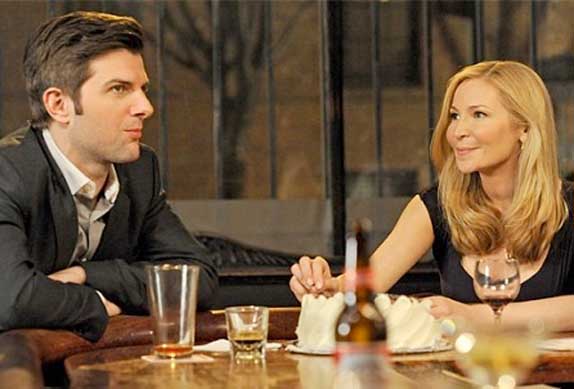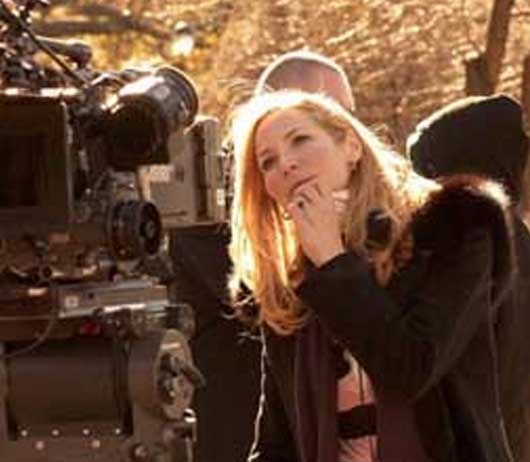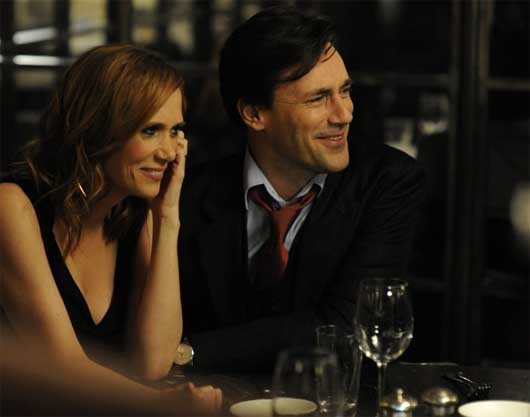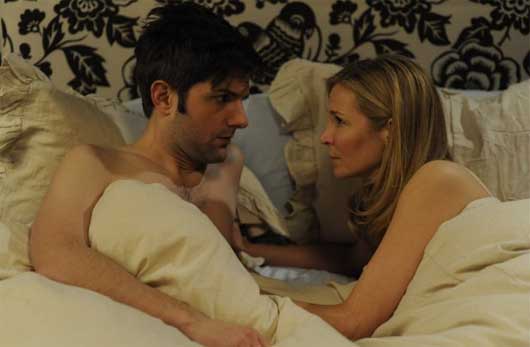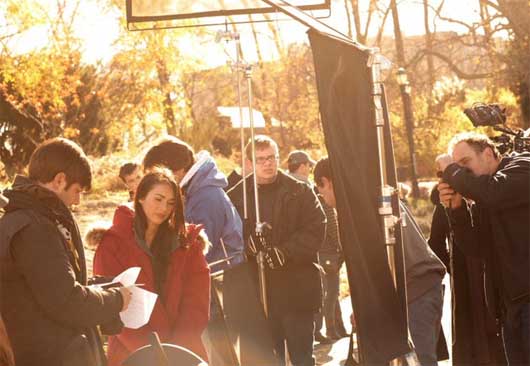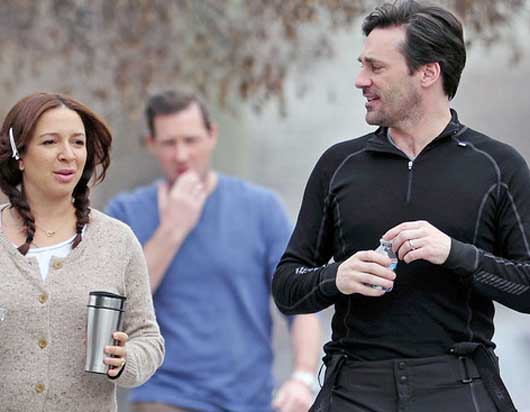 FILM
FILM In Which We Remain Smaller Than We Were Before
 Monday, January 15, 2018 at 12:10PM
Monday, January 15, 2018 at 12:10PM 
All You Have To Do Is Say Yes
by ETHAN PETERSON
Downsizing
dir. Alexander Payne
135 minutes
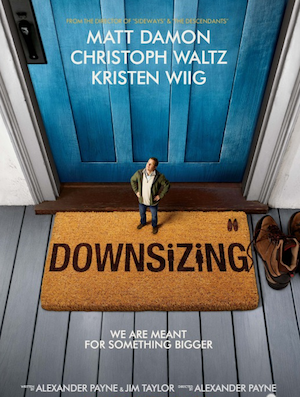 There is a scene late in Alexander Payne’s Downsizing where a bunch of Norwegians watch the sun go down for the last time. It is an oblique commentary on President Trump’s desire to see more Norwegian-Americans, and as such it is very topical. Around 150,000 non-whites live in Norway, but as Payne pans across this collection of Norwegian people, they are a diverse panoply of different ethnicities. It is the moment where the question of, “Is Downsizing pandering?” is answered definitely in the affirmative.
There is a scene late in Alexander Payne’s Downsizing where a bunch of Norwegians watch the sun go down for the last time. It is an oblique commentary on President Trump’s desire to see more Norwegian-Americans, and as such it is very topical. Around 150,000 non-whites live in Norway, but as Payne pans across this collection of Norwegian people, they are a diverse panoply of different ethnicities. It is the moment where the question of, “Is Downsizing pandering?” is answered definitely in the affirmative.
Payne has been often celebrated for his satires. That is until Downsizing, because no one could seemingly figure out what was being satirized, or why it would be unusual for human beings to shrink down to a size of five inches. Once Paul (Matt Damon) makes this move, his wife (Kristen Wiig) refuses to go through with it and files for divorce. Instead of having a life of considerable wealth in his tiny village, he has to answer telephones for Lands' End, which Payne presents as a humiliating job.

In contrast, Paul’s true calling is as an occupational therapist. He is always noticing when someone is walking funny or suffering from some kind of chronic pain. He dates a woman who doesn’t want him to meet her kid, and comes home to the same shitty apartment he might have in a large person’s world. In other scenes, he witnesses a depth of poverty that transcends the size of the people involved.
Paul spends the rest of the movie as a pseudo-doctor to those in the slums who can’t afford anything better. It is a strange choice for Payne's film, but not as strange as the presentation of poverty in this context. Like many rich whites, Payne believes that those who depend on the efforts of others for their subsistence are uniformly non-white. Payne shares this view with - you guessed it - our beleaguered president.

Watching Matt Damon minister to the poor strikes us as a pathetic recreation of his actual life of justifying and defending the abhorrent behavior of his friends and colleagues. Yet in Paul there is something of the sycophantic enabler that Damon must be to the point where we sense Payne is using our disapproval of the actor behind the mask to draw suspicion to all those individuals who would do something positive for the wrong reasons. In the end, the wrong to be rectified is so much more awful that we accept any reason is just.
Poverty is a disgraceful symptom of a certain, more inclusive society. (Norway has never had to face such problems.) In order to eradicate it, we could conceivably shrink ourselves. As Payne presciently notes, there are ensuing problems – the amount of taxes collected would go down, the amount of consumer spending would go down. But what we should have realized before our government prevented the collapse of massive, irresponsible banks is that a new economy will always replace the old. This is the essential, undiminished spirit of capitalism. Payne writes around this essential question by drawing the world to an end in Downsizing.

By the end the main character in Downsizing becomes Ngoc Lan Tran (Hong Chau), a Vietnamese woman whose leg was amputed at the knee. She falls in love with Matt Damon while he is attempting to fix her prosthetic leg. In one exciting scene, they have sex after he is massaging her stump — she makes very elaborate groans which are meant to be a cue to him to initiate intercourse. Hong Chau is a fantastic actor in a somewhat problematic role, since Lan Tran has no flaws whatsoever and is basically presented as a female Confucius. Still, this at least feels like a risk in a movie that has very few.
As a result, the remedy that Downsizing offers for American life is focused on the personal. It is a very inoffensive, ineffectual answer to the serious economic question posed by this film’s premise, and I think audiences and critics reacted to Payne’s cowardice. I tend to give him a wider berth, but I understand it. In art, it's not enough, anymore, to say how and why the world feels wrong to you. You should probably have an idea of how it could be changed for the better.
Ethan Peterson is the reviews editor of This Recording.






































